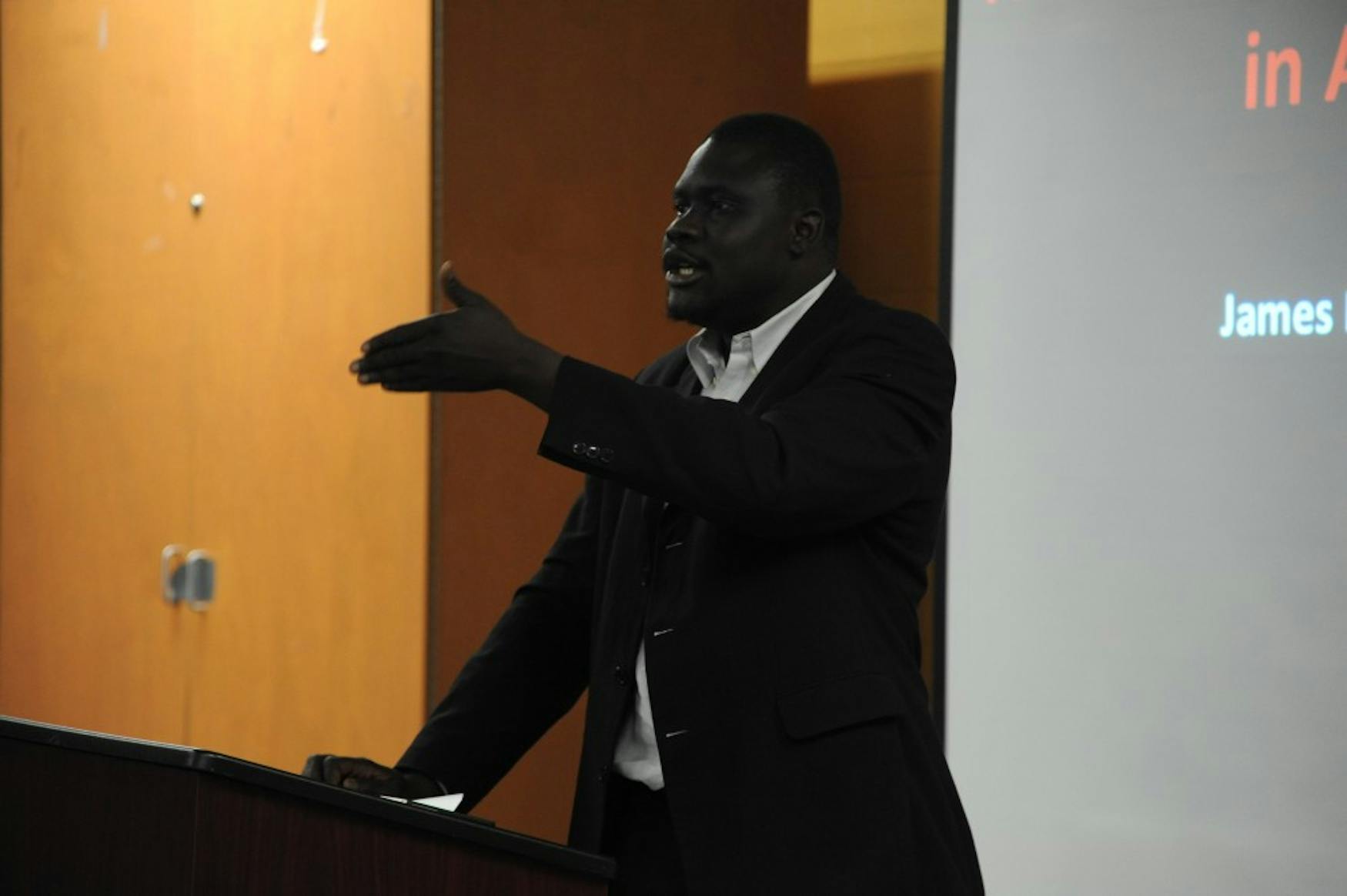Speakers talk change in Africa
On Friday evening, Nadege Seppou ’15 and the Brandeis African Students Organization organized L’Afrique Talks, an event for Brandeis students and faculty to discuss modern day problems in Africa.
Seppou, who moderated the event, began by stating that “before change can happen it must first be envisioned and so that’s why I believe it’s important for us to speak and begin thinking about these things.” Seppou then introduced the event, which consisted of nine students speaking on different topics that they believed were essential to promoting change in Africa.
The first three speakers—Boaz Kisivuli ’17, Etiosa Obasuyi ’15 and Cleophas Kalekem ’17, who are all originally from Africa—spoke about the economic hardships rural Kenyans face. According to Kisivuli, “lack of technology is the reason for the widespread disparity between the rich and the poor nations, and you can see this in Africa.”
Kalekem added that the lack of electricity in rural areas makes the use of most technology impossible. He told the audience that he believes that “the first thing we need to improve in rural areas is the electricity supply; that is what we really lack.”
Obasuyi then spoke about the economic challenges caused by nearly nonexistent technology. He described how students did not have the resources to learn about computers, which later put them at a disadvantage in the workforce. He also noted that business owners could not expand their businesses because they had no way of communicating with people outside of their villages. All three student speakers said they believe that Africa is “losing a lot of human capital” and that improved connectivity will benefit the economy and the continent.
Rima Tahini ’16, who is from Sierra Leone, spoke about empowering women in Africa. She began by describing several mechanisms through which women were being empowered in business and in culture.
According to Tahini, empowering women “will go a long way in alleviating poverty in Africa” as it will nearly double the workforce and provide two incomes for families. Tahini concluded by stating that although there has been moderate progress, the global community should “not mistake progress for success, we are still far behind [in empowering women].”
Yasmin Yousof ’15 then took the podium to discuss language in Africa. She began by summarizing the colonization of Africa, and how Africans were forced to speak the language of their colonizers. Yousof described how the colonizers managed to make their Western languages seem “superior,” by forcing all natives to learn them, while native languages were labeled “inferior” and were even forbidden in some countries.
She explained that throughout Africa “speaking one’s native languages, especially in formal settings, was seen as barbaric.” Yousof argued that culture and language are very closely tied and that native African languages should be preserved because “ Josiane Fofana ’15 spoke about education in Senegal, her native country. She described the conditions in Senegalese high schools and colleges, where students are sometimes forced to study under street-lights when dorms and libraries do not have electricity.
Fofana argued that the lack of practical training in schools, such as the lack of science and computer labs, limits the students’ educational options. She also described how teachers’ small salaries result in strikes and the “cancellation of academic years,” which students then must repeat. Fofana also noted how these schools still follow the old French colonial education system, stating, “I know more about the West than I know about my own continent.” According to Fofana, major educational reform needs to occur because “if you don’t go to school, … you don’t have a real future.”
Brontte Hwang ’15 then spoke about her passion for Africa—particularly the country of Namibia—even though she herself is not African. Hwang explained that, as a Korean, she had never had much interest in Africa until she visited Namibia.
Hwang described teaching math and English to local Namibian children and developing a deep connection with them. She explained how the remnants of apartheid and poverty are still challenges that many children face. Hwang also stated that helping children “starts with education” and expressed her desire to move to Namibia after graduating to help improve education.
Next, Bezaye Teshome ’16 discussed the challenges faced by people with developmental disorders, particularly by those with autism, in Ethiopia. She explained that autism is often seen as “supernatural” in Ethiopia, meaning that there is “a lot of [negative] stigma attached to it.”
Teshome stated that this view causes many challenges for families because “not a lot of professionals are specializing in the area,” making it difficult to find treatment. She said that she hopes to work toward “break[ing] the silence that is associated with these developmental disorders” and to “get the word out … that [they’re] not associated with anything supernatural.”
The final speaker, James Barnaba M.A. ’16, argued that youth civic engagement is essential when it comes to solving the many problems in Africa. Barnaba stated that African youth should be empowered and civically engaged to promote change, noting that “all the issues in Africa need to be tackled today” and that they “cannot be solved by ‘I wish’” but by action.



Please note All comments are eligible for publication in The Justice.